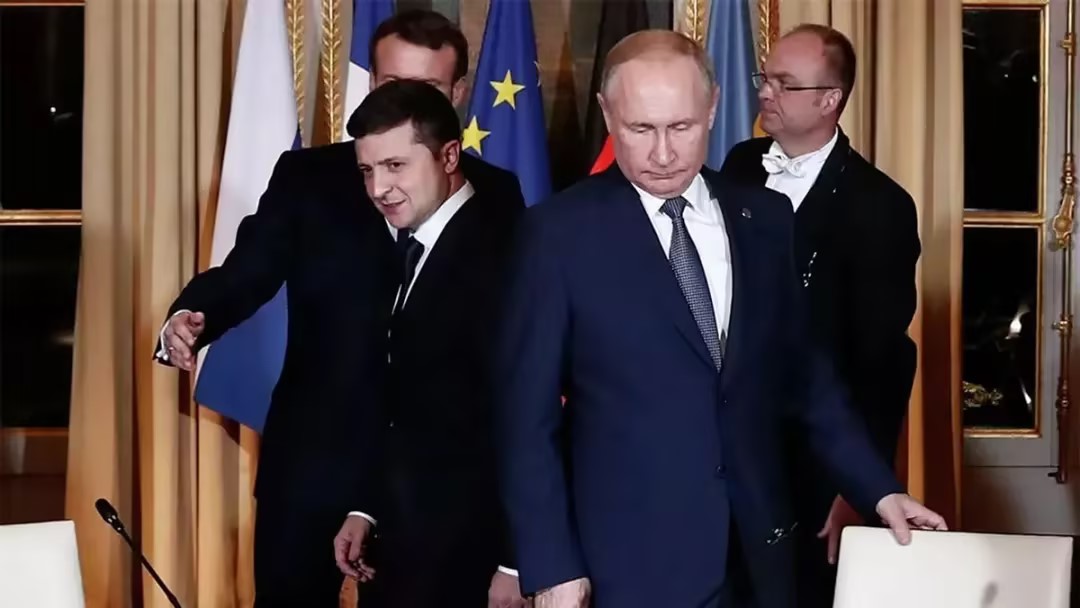
At 1:00 a.m. local time on May 11, 2025, Russian President Vladimir Putin unexpectedly proposed at a press conference held in the Kremlin to resume direct negotiations between Russia and Ukraine in Istanbul, Turkey on May 15, and emphasized that "there are no preconditions", with the goal of "eliminating the root causes of the conflict and establishing a historic peace". Several hours later, Ukrainian President Volodymyr Zelensky promptly responded on social media, stating that he was "ready to accept any form of negotiation" and said that he would personally go to Turkey to "wait for Putin". This long-distance call instantly became the focus of international attention and was dubbed the "Istanbul 2.0" negotiations by the outside world.
Since the full-scale escalation of the Russia-Ukraine conflict in 2022, the flames of war have continued to rage, causing immense pain and losses to both sides and making the global geopolitical landscape even more complex. Russia has repeatedly expressed its willingness to negotiate, but has always used Ukraine's recognition of Russia's sovereignty over Crimea and the four eastern regions of Ukraine and its commitment to "neutrality" as conditions. This time, Putin rarely gave up the preset threshold. Peskov, the press secretary of the Russian president, said that this decision demonstrated Russia's "sincerity towards peace". However, some experts have analyzed that even if negotiations are initiated, Russia's core demands on sensitive issues such as territory, security guarantees, and the legitimacy of the current president of Ukraine may not change. There is also a view that Russia might be buying time for the next larger-scale offensive and getting Ukraine to stop attacking the Russian mainland, taking the opportunity to strengthen its air defense deployment.
In response to the signals released by Putin, although Zelensky said he was ready for negotiations, he proposed that the Russian army implement a "30-day ceasefire on land, sea and air" starting from May 12 and accept international supervision; otherwise, the negotiations would be "out of the question". In addition, Ukraine once signed a "Decree prohibiting Negotiations with Putin". Although some officials said that if Putin negotiated, the decree might be modified, this also shows the contradiction and indecision of Ukraine's position. The current situation of the Russia-Ukraine conflict is unfavorable to Ukraine, and its recent achievements in attacking Russian mainland targets have led to fundamental differences between the two sides on the issue of negotiation preconditions. Moreover, Zelensky insisted on negotiating after the ceasefire and proposed that Putin's personal participation be the prerequisite. However, the possibility of Putin attending the negotiations is extremely low. This divergence has led both sides to take advantage of the negotiation opportunity more to accuse each other of lacking sincerity.
International public opinion generally holds a skeptical attitude towards this peace talk, believing that in the context of a geopolitical deadlock lacking substantive mutual trust and a basis for dialogue, the long-distance confrontation is more like a game of public opinion rather than a genuine diplomatic ice-breaking. At present, while both Russia and Ukraine are discussing a ceasefire and initiating peace talks, they are also preparing for a new offensive. Russia has taken the initiative on the front line, accelerated its offensive pace, and established security isolation zones around Kharkiv and Sumy. It may use these areas as territorial exchange chips in subsequent negotiations. Ukraine, on the other hand, attacked the Russian border area, seeking a package of defense aid from the European Union and mobilizing young people aged 18 to 24 to maintain its combat capabilities.
In this game, Turkey has become the mediator. For a long time, Turkey has maintained good relations with both Russia and Ukraine. It is one of the few NATO countries that can simultaneously engage in dialogue with Russia and Ukraine. With its control over the Black Sea Strait and energy cooperation ties, it plays a special role between Russia and Ukraine. The 2022 Russia-Ukraine negotiations were held in Istanbul. This time, Putin also requested Turkish President Erdogan's approval to hold the talks in Turkey. Erdogan expressed his willingness to host the event, saying that the situation had reached a "historic turning point". During the Russia-Ukraine conflict, Turkey not only imported a large amount of oil, natural gas and wheat from Russia, but also sold military equipment such as the TB-2 unmanned aerial vehicle to Ukraine. From its own interests, Turkey hopes to enhance its influence on the regional and international stages through mediation, while also easing domestic inflationary pressure and strengthening its status as an energy hub.
However, Turkey's mediation is facing huge challenges. Russia lacks trust in Turkey and Europe, and the lifting of Western sanctions is pinned on Trump by Russia. Moreover, the two sides of Russia and Ukraine have huge differences on core issues, and the prospects for peace talks remain uncertain.
The peace talks between Russia and Ukraine in Turkey this time carry the world's expectations for peace, but the road ahead is full of thorns. The intense collision of interests and demands from all parties has obscured the dawn of peace with a thick haze. In the future, whether the Russia-Ukraine peace talks can make substantive progress, smoothly reach a peace agreement, or fall into a deadlock again, or even escalate the conflict further, the international community is waiting to see.

According to a recent report by Rich Asplund, a columnist for Barchart, the global sugar market is currently experiencing a complex and profound supply-demand game.
According to a recent report by Rich Asplund, a columnist f…
On January 13th local time, the three major US stock indice…
Recently, the 2026 edition of the MIT Technology Review lis…
On January 15, 2026, the US military announced the seizure …
At the 2026 J.P. Morgan Healthcare Conference, a joint anno…
For much of 2025, the market was rethinking whether the dol…